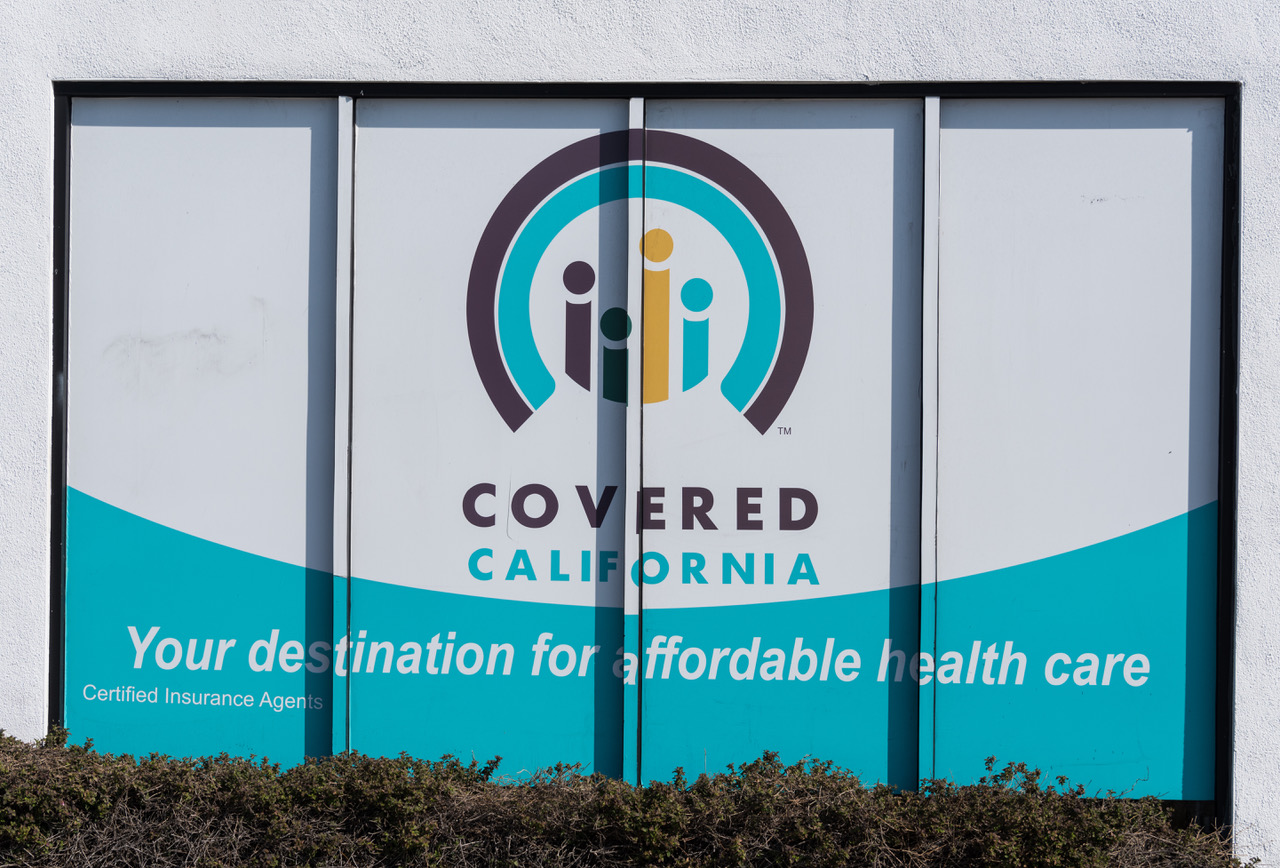
*California State University Faculty Vote to Authorize Strike
The California Faculty Association (CFA), the union representing faculty at California State University (CSU) schools has voted to authorize a strike if it cannot reach a deal with the 23-campus system’s administration. CFA represents approximately 29,000 professors, lecturers, coaches and other faculty across the state.
“Cal State voted overwhelmingly to authorize a strike, if necessary,” said Charles Toombs, a professor and former chairperson of Africana Studies at San Diego State University (SDSU) and the union’s president, during a virtual press conference Oct 30. “Members are emphatic that low pay, growing workloads, and systematic inequalities are not sustainable.
The union pushed for 12% across-the-board increases this fiscal year, but CSU offered 12% over the next three years. When CFA refused to consider a multi-year offer, the CSU offered a one-year GSI of 5%. CFA then declared an impasse within 40 minutes of receiving this offer.
“We are still moving through the statutory process. CFA members plan on bringing our demands and solidarity to trustees and new Chancellor Mildred García at the November 7 CSU Board of Trustees meeting in Long Beach,” read a press release from CFA. The report continued: “CSU management says they can’t afford our re-opener proposals, but a CFA fiscal analysis shows otherwise. The CSU has been hoarding billions of dollars in reserves instead of investing in faculty and staff who work directly with our students. Their investment in administrative personnel is increasing while their investment in instructional support continues to shrink.”
In the fall of 2022, 18,308 Black or African American students (4.0%) were enrolled in the CSU system. The CSU system is comprised of 23 universities with nearly 500,000 students.

PPIC Releases Report on Community College Access
“Tracking Progress in Community College Access and Success,” a report by the Public Policy Institute of California (PPIC) examines the effects of Assembly Bill (AB) 705 authored by Jacqui Irwin (D-Thousand Oaks) and passed in 2017 that changed the assessment and placement practices for community college students in California.
AB 705 requires California community colleges to use multiple measures like high school coursework, grades, and GPA for student placement in transfer-level Math and English courses without needing to take remedial courses first. The law aims to ensure that students are starting and finishing the English and Math courses during their first year.
By replacing standardized tests used for Math and English course placement, AB 705 addressed criticisms of inaccuracies, inequities, and biases that disadvantaged some groups of students, especially Black, Latino, and English Language Learners.
The report shows both the progress students made from the fall of 2018 to fall 2022, and the challenges remaining to be addressed. While access and completion rates have improved substantially for all students, there are still large equity gaps between racial/ethnic groups, especially for Black students.
For example, in transfer-level math, the white-black gap in one-term course completion is 22 percentage points, and the White-Latino gap is 17 points. In transfer-level English, the White-Black gap is 13 points, and the White-Latino gap is 10 points. Black students are also less likely to enroll in corequisite courses, which provide additional support and are taken concurrently with the transfer-level course and offer extra instruction, tutoring, or mentoring to help students succeed.
The report recommends several strategies and initiatives that can help improve outcomes and reduce disparities. They include the involvement and cooperation of institutions, efficient supports and resources for students, data-driven decision-making, and targeted programs for Black students.
Some examples of the targeted programs for Black students are:
• Umoja Community: A statewide program that provides culturally relevant curriculum, mentoring, counseling, and academic support to increase the success and retention of Black students.
• African American Male Education Network and Development (A2MEND): A program that focuses on empowering Black male students through leadership development, personal growth, and academic achievement.
• Puente Project: A program that aims to increase the number of educationally underserved students who enroll in four-year colleges and universities, earn degrees, and return to the community as leaders and mentors.
• California Promise: A program that offers two years of free tuition to first-time, full-time students who meet certain eligibility criteria.
The report is based on data from the California Community Colleges Chancellor’s Office and interviews with faculty and administrators from selected colleges.

Open Enrollment 2023: Covered California Is Providing Financial, Enrollment Assistance to Insure Maximum Insurance Coverage
Covered California kicked off its 2024 open-enrollment period at the iconic Los Angeles State Historic Park and Roundhouse Bridge, a public space that serves some of the most vulnerable communities in the state, with roots that connect back to the early history of the city and region.
California Black Women’s Health Project Chief Executive Officer Sonya Young Aadam was among those who joined Covered California Executive Director Jessica Altman to launch open enrollment and highlight how record financial assistance are bridging the gap between uninsured Californians and access to affordable, name-brand health insurance coverage.
“There has never been more financial assistance available to help Californians pay for health care coverage than there will be in 2024,” said Jessica Altman. “We want every uninsured Californian to know that affordable and quality health care coverage is available and within closer reach than ever before.”
The event marked the start of the 11th year of Covered California offering affordable, name brand health care coverage and financial assistance to Californians under the Affordable Care Act. Open enrollment, which began Nov. 1 and runs through Jan. 31, 2024, is the time of year when Californians can register for health insurance or modify to their existing plans.
During this year’s open enrollment, Covered California is partnering with organizations throughout the state to deliver health resources to the community. In Los Angeles, Covered California will participate in the African American Men’s Wellness Walk at Rancho Cienega Recreation Center on Saturday, Nov. 11, where in addition to health screenings, two informational sessions with Dr. Monica Soni, Chief Medical Officer of Covered California will be presented at 9 a.m. and 10:15 am. The sessions will discuss healthcare, open enrollment and Medi-Cal, and be moderated by KJLH Radio on-air personality Adai Lamar.
In San Francisco, Covered California will host a joint African American and AANHPI health clinic event at the Southeast Community Center on Saturday, Dec. 9. In addition to health screenings, community-based organizations will be on hand to provide information and resources.
Consumers can learn more about their options by visiting CoveredCA.com, where they can easily find out if they qualify for financial help and see the coverage options in their area.
All they need to do is enter their household income, ZIP code, household size and the number of people who need coverage and their ages into the calculator on Covered California’s homepage.
Interested parties can get free and confidential assistance over the phone, in a variety of languages, from a certified enroller at (800) 300-1506.
Asm. Mike Gipson Shares Legal Details About Closing of Lincoln Cemetery With Concerned Constituents
California Legislative Black Caucus member Assemblymember Mike Gipson (D-Carson) provided an update on the circumstances surrounding the closing of Lincoln Memorial Park, a cemetery located in Carson.
Outraged families of loved ones laid to rest at Lincoln Memorial Park have been under a cloud of frustration about the privately-owned cemetery. Gipson stated that the California Department of Consumer Affairs’ Cemetery and Funeral Bureau (CFB) has posted a Frequently Asked Questions FAQ document that updates the public on the status of Lincoln Cemetery.
“It has been just over two months since the cemetery license was canceled. CFB’s FAQ explains what this means in specific terms, from a legal perspective,” Gipson wrote.
The owner of the cemetery, Michael Mintz, abandoned the property and surrendered his cemetery license. The gates to the 20-acre property were briefly locked and it was reopened despite disrepair and neglect.
The cemetery holds historical significance dating back to the 1930s. Some of those interred were born after the Civil War. African American boxer Joe Lewis dedicated a plaque in Lincoln cemetery in 1949.
“I am continuing to explore all possible avenues that will expedite our path to license operations at the Lincoln Cemetery and I am advocating personally for our community,” Gipson stated. “Please share the FAQ with those who have an interest in this historic site. I would like to thank all community members for their continued support and your feedback.”
Gipson’s staff is available for questions concerning the cemetery. For additional information, call (310) 324-6408.
California Launches Basic Income Program for Former Foster Children
Former foster youth living in the city and county of San Francisco are eligible to apply for a Guaranteed Income Pilot Program that will pay them $1200 a month for 18 months.
“Guaranteed income programs help level the playing field and will give these former foster youth the support and resources they need to pursue their California dream,” said Gov. Gavin Newsom in a statement when he announced the program Nov. 3.
To support the program, the state awarded San Francisco $3,439,090. Another Guaranteed Income Pilot program will be launched in Ventura County with a $1,538,758 state investment.
“These pilots, through the Department of Social Services, will provide unconditional, individual, regular cash payments intended to disrupt poverty, advance equity, and support the basic needs of recipients,” said a press release from Newsom’s office.
San Franciscans who participate in the program will receive counseling and the state will measure the impact of the program on their lives and their eligibility for other public benefits.
“Transitioning out of the foster care system can be incredibly challenging for many of our youth, and this sustained unconditional income over 18 months will help systems-involved youth pursue their hopes and dreams. In doing so, our goal is to disrupt the cycle of poverty and advance a more equitable future for former foster youth,” said San Francisco Human Services Agency Deputy Director of Policy, Planning, and Public Affairs Susie Smith.
“This is an amazing opportunity to break the cycle of poverty experienced by many young adults transitioning out of foster care,” Smith added.
MORE NEWS OPN EURWEB: California Black Media Political Playback – News You Might Have Missed
We Publish News 24/7. Don’t Miss A Story. Click HERE to SUBSCRIBE to Our Newsletter Now!






